

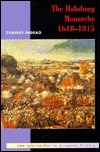
New Approaches to European History
Series · 30
books · 1720-2016
Books in series

#1
Women and Gender in Early Modern Europe
1993
This is a major new edition of a stimulating and authoritative book. Merry Wiesner has updated and expanded her prize-winning study; she has added new sections on topics such as sexuality, masculinity, the impact of colonialism, and women's role as consumers. Other themes investigated include the female life cycle, literacy, women's economic role, artistic creation, female piety—and witchcraft—and the relationship between gender and power. Accessible, engrossing, and lively, this book will be of central importance for those interested in gender history, early modern Europe, and comparative history.

#2
The European Revolutions, 1848-1851
1994
Jonathan Sperber has updated and expanded his study of the European Revolutions between 1848-1851 in this second edition. Emphasizing the socioeconomic background to the revolutions, and the diversity of political opinions and experiences of participants, Sperber offers an inclusive narrative of the revolutionary events and a structural analysis of the reasons for the revolutions' ultimate failure. A wide-reaching conclusion and a detailed bibliography make his book ideal for classroom use and the general reader wishing a better knowledge of a major historical event.

#3
The Habsburg Monarchy, 1618 - 1815
1720
This is the first accessible and comprehensive history of the early modern Habsburg monarchy to appear in any language. Professor Ingrao challenges the conventional notion of Habsburg state and society as peculiarly backward by tracing its emergence as a military and cultural power of enormous influence, with a large and growing population, progressive judicial and educational systems and a sizeable industrial base. The Habsburg monarchy was undeniably different from other European polities: geography and linguistic diversity made this inevitable, but by 1789 the Habsburg peoples were already beginnning to nurture a common, anational identity that transcended their particular cultural or historic heritage. Professor Ingrao unravels the web of social, political, economic and cultural factors that shaped the Habsburg monarchy during this period, and presents this complex story in a way that is both authoritative and accessible to non-specialists.
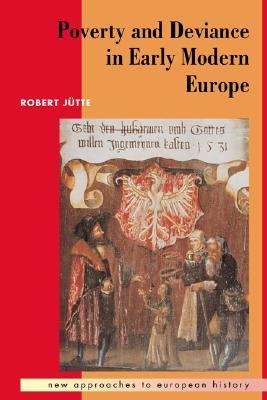
#4
Poverty and Deviance in Early Modern Europe
1994
This study provides an accessible and authoritative account of poverty and deviance during the early modern period, informed by those new perspectives on the role of the poor themselves in the provision of welfare services characteristic of much recent social history. Contrary to the once-traditional historical emphasis on the ameliorative role of individual reformers, Professor JÜtte's account looks much more closely at the poor themselves, and the complex network of social and communal relationships they inhabited.
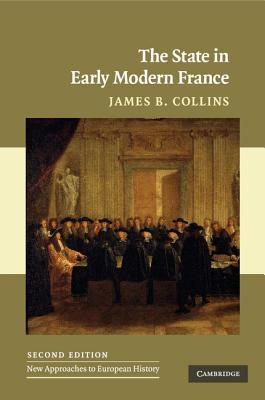
#5
The State in Early Modern France
1995
A new edition of James Collins' acclaimed synthesis that challenged longstanding views of the origins of modern states and absolute monarchy through an analysis of early modern Europe's most important continental state. Incorporating recent scholarship on the French state and his own research, James Collins has revised the text throughout. He examines recent debates on 'absolutism'; presents a fresh interpretation of the Fronde and of French society in the eighteenth century; includes additional material on French colonies and overseas trade; and ties recent theoretical work into a new chapter on Louis XIV. He argues that the monarchical state came into being around 1630, matured between 1690 and 1730 and, in a new final chapter, shows that the period May 1787 to June 1789 was an interregnum, with the end of the Ancien Régime coming not in 1789 but with the dissolution of the Assembly of Notables on 25 May 1787.
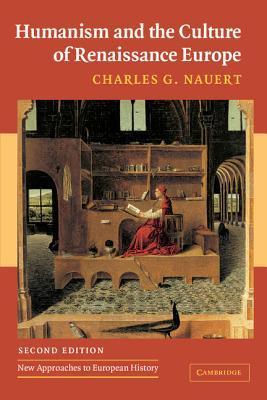
#6
Humanism and the Culture of Renaissance Europe
1995
In this updated edition of his classic account, Charles Nauert charts the rise of humanism as the distinctive culture of the social, political and intellectual elites in Renaissance Europe. He traces humanism's emergence in the unique social and cultural conditions of fourteenth-century Italy and its gradual diffusion throughout the rest of Europe. He shows how, despite its elitist origins, humanism became a major force in the popular culture and fine arts of the fifteenth and sixteenth centuries, and the powerful impact it had on both the Protestant and Catholic Reformations. He uses art and biographical sketches of key figures to illuminate the narrative and concludes with an account of the limitations of humanism at the end of the Renaissance. The revised edition includes a section dealing with the place of women in humanistic culture and an updated bibliography. It will be essential reading for all students of Renaissance Europe.

#7
Enlightenment
1995
Was the Enlightenment a unified body of thought generated by an established canon of great thinkers, or were there many areas of contradiction and divergence? This important new textbook presents the major debates of the period against the background of broader social changes.
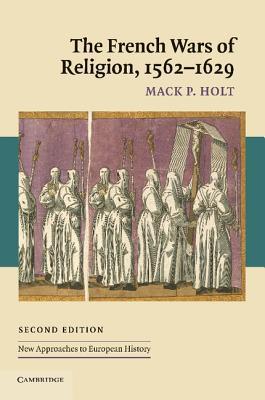
#8
The French Wars of Religion, 1562-1629
1995
This book is a new edition of Mack P. Holt's classic study of the French religious wars of the sixteenth and seventeenth centuries. Drawing on the scholarship of social and cultural historians of the Reformation, it shows how religion infused both politics and the socio-economic tensions of the period to produce a long extended civil war. Professor Holt integrates court politics and the political theory of the elites with the religious experiences of the popular classes, offering a fresh perspective on the wars and on why the French were willing to kill their neighbors in the name of religion.
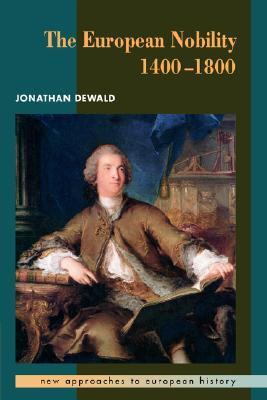
#9
The European Nobility, 1400 - 1800
1996
This book is the first comprehensive history of the European nobility between the Renaissance and the French Revolution. Designed to introduce students and nonspecialists to the subject, it explains all the principal themes in an authoritative and accessible manner. Challenging the conventional point of view, Professor Dewald maintains that the nobles of Europe adapted effectively to the profound changes that marked society and culture at this time. He also argues that the nobility throughout Europe faced the same challenges and reacted to them in similar ways, despite their varying numbers and privileges.
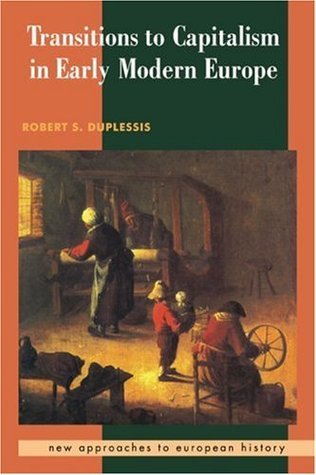
#10
Transitions to Capitalism in Early Modern Europe
Economies in the Era of Early Globalization, c. 1450 - c. 1820
1997
Transitions to Capitalism in Early Modern Europe analyzes the diverse patterns of economic change that transformed agriculture and industry between the end of the Middle Ages and the Industrial Revolution. Explicitly comparative, it introduces readers to a wealth of factual material, to classic interpretations, and to current debates. In this study Professor DuPlessis also incorporates recent scholarship on the world economy, proto-industry and women's work, and discusses the impact of the new economic order on Europe's working people.
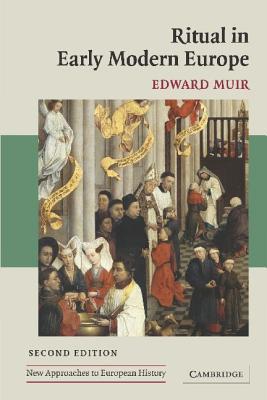
#11
Ritual in Early Modern Europe
1997
This new and expanded edition of the first comprehensive study of rituals in early modern Europe examines the impact on the European interpretation of ritual from the discoveries of new civilizations in the Americas and missionary efforts in China. It also adds more material about rituals peculiar to women. Edward Muir draws on extensive historical research to emphasize the persistence of traditional Christian ritual practices, even as enlightened elites attempted to choose reason over passion, textual interpretation over ritual action, and moral rectitude over gaining access to supernatural powers of anti-Christian rituals. First Edition Hb (1997) 0-521-40169-0 First Edition Pb (1997) 0-521-40967-5

#12
The World of Catholic Renewal, 1540-1770
1997
A history of Catholicism from the Council of Trent in the middle of the sixteenth century to the suppression of the Society of Jesus in the eighteenth century, this accessible study of Catholicism offers the first synthesis of the vast scholarship on Catholic renewal in Europe and on Catholic missions in the non-European world. Professor Hsia discusses the doctrinal and ecclesiastical renewal after Trent and the progress of Catholic reconquest in various lands. He also analyses the social composition of the Tridentine clergy and the papal curia and explores the making of early modern sainthood and the enclosure of religious women. Encompassing art and architecture, Hsia attempts to understand Catholic renewal as a vast historical development that shaped European civilization between the sixteenth and eighteenth centuries and at the same time explores its expansion and encounter with non-Christian civilizations in America, Africa, and Asia.
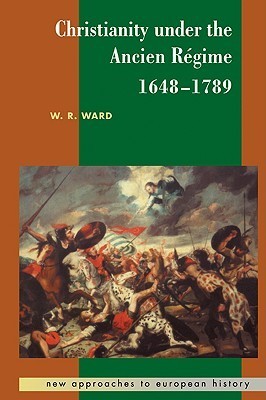
#14
Christianity under the Ancien Régime, 1648-1789
1995
This book offers a brief, but comprehensive, account of religious belief and experience in Europe between the Westphalia settlements in 1648 and the French Revolution. The book is organized around large European regions such as Central and Northwestern Europe (including Britain), Southern Europe and North and Eastern Europe. Within each chapter Professor Ward discusses the churches in their political, social and intellectual context. With its maps, glossary and guide to further reading, this promises to be a major aid to students of Christianity under the ancien régime.
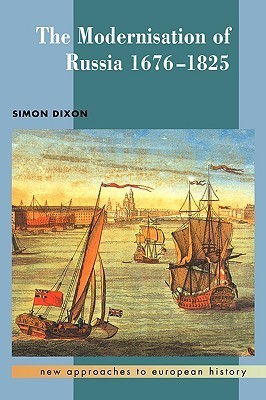
#15
The Modernisation of Russia, 1676-1825
1995
This is an analytical account of a colorful period in Russian history, which is accessible to undergraduates of European and Russian history, as well as to the nonspecialist reader. Central to a discussion that emphasizes Russia's place in Europe are the much misunderstood personalities of some remarkable rulers, such as Peter the Great, Catherine the Great and Alexander I. Their reigns are set in the context of wider developments in social, economic, cultural and intellectual history that help to account for Russia's emergence as a great power.
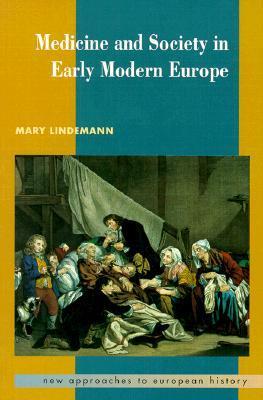
#16
Medicine and Society in Early Modern Europe
1999
Medicine and Society in Early Modern Europe, offers undergraduate students a concise introduction to a subject rich in historical excitement and interest. Mary Lindemann, a distinguished scholar of the history of medicine, writes with exceptional clarity and examines medicine from a social and cultural perspective rather than a narrowly scientific one. She focuses on the experience of illness and on patients and folk healers as much as on the rise of medical science, doctors and hospitals.
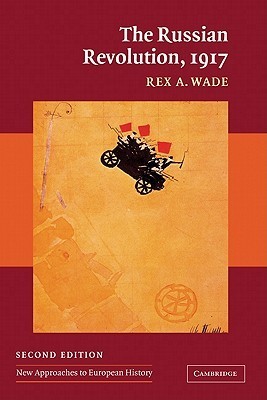
#18
The Russian Revolution, 1917
2000
Combining his own long term study of the revolution with the best of contemporary scholarship. Rex Wade presents a revised and expanded account of one of the pivotal events of modern history in this second edition. Within an overall narrative that provides a clear description of the 1917 revolution, he introduces several new approaches on its political history and complexity. Wade discredits many of the myths and misconceptions that have clouded studies of the period. He also considers the social history of the revolution and incorporates people and places too often left out of the story, including women, national minority peoples, and peasantry front soldiers.
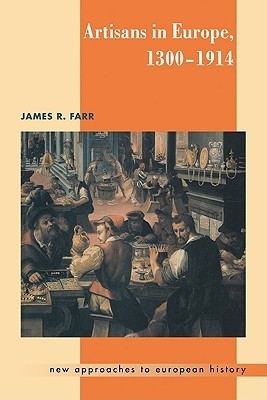
#19
Artisans in Europe, 1300-1914
2000
This book is an introduction to the history of work in general and of artisans in particular in Europe from 1300 to 1914. It focuses on many aspects of artisan culture, including economic and guild life, and discusses social, rebellious, ceremonial and leisure experience as well. Women, masters, journeymen, apprentices, and non-guild workers all receive substantial treatment, and the text is illuminated with fascinating illustrations.
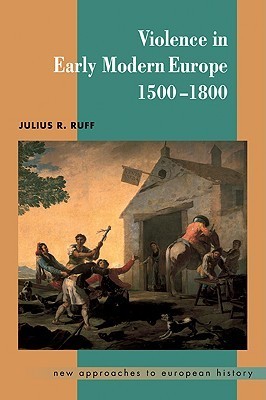
#22
Violence in Early Modern Europe 1500-1800
2001
This book offers a broad-ranging survey of violence in western Europe from the Reformation to the French Revolution. Julius Ruff summarizes a huge body of research and provides readers with a clear, accessible, and engaging introduction to the topic of violence in early modern Europe. Ruff examines the role of the emerging state in controlling violence; the roots and forms of interpersonal violence; violence and its impact on women; infanticide; and rioting. His book will be of great value to students of European history, criminal justice sciences, and anthropology.
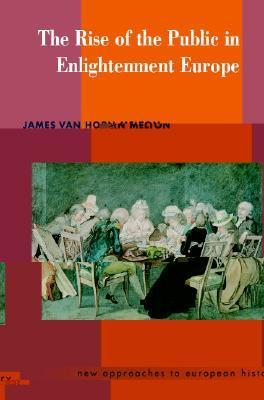
#23
The Rise of the Public in Enlightenment Europe
2001
James Melton's accessible study examines the rise of "the public" in eighteenth-century Europe. Focusing on England, France, and the German-speaking territories, this is the first critical reassessment of what the philosopher JÜrgen Habermas called the "bourgeois public sphere" of the eighteenth century. Topics include the growing importance of public opinion in political life, transformations of the literary public realm, eighteenth-century authorship, theater publics, and new practices of sociability as they developed in salons, coffeehouses, taverns and Masonic lodges.
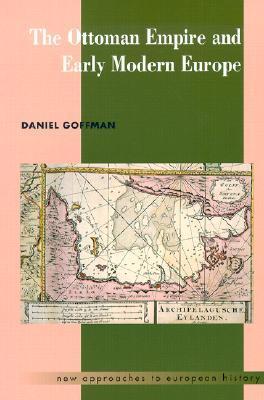
#24
The Ottoman Empire and Early Modern Europe
1998
Despite the fact that its capital city and over one third of its territory was within the continent of Europe, the Ottoman Empire has consistently been regarded as a place apart, inextricably divided from the West by differences of culture and religion. A perception of its militarism, its barbarism, its tyranny, the sexual appetites of its rulers and its pervasive exoticism has led historians to measure the Ottoman world against a western standard and find it lacking. In recent decades, a dynamic and convincing scholarship has emerged that seeks to comprehend and, in the process, to de-exoticize this enduring realm. Dan Goffman provides a thorough introduction to the history and institutions of the Ottoman Empire from this new standpoint, and presents a claim for its inclusion in Europe. His lucid and engaging book—an important addition to New Approaches in European History—will be essential reading for undergraduates.

#28
Reformation Europe
2005
How could the Protestant Reformation take off from a tiny town in the middle of Saxony, which contemporaries regarded as a mud hole? How could a man of humble origins who was deeply scared by the devil become a charismatic leader and convince others that the pope was the living Antichrist? Martin Luther founded a religion which up to this day determines many people's lives in intimate ways, as did Jean Calvin in Geneva one generation later. This is the first book which uses the approaches of new cultural history to describe how Reformation Europe came about and what it meant.
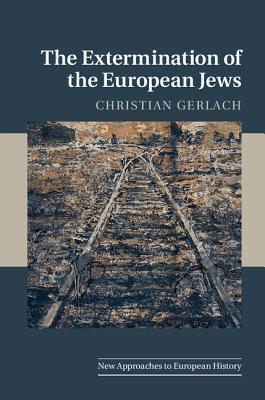
#30
The Extermination of the European Jews
2016
This major reinterpretation of the Holocaust surveys the destruction of the European Jews within the broader context of Nazi violence against other victim groups. Christian Gerlach offers a unique social history of mass violence which reveals why particular groups were persecuted and what it was that connected the fate of these groups and the policies against them. He explores the diverse ideological, political and economic motivations which lay behind the murder of the Jews and charts the changing dynamics of persecution during the course of the war. The book brings together both German actions and those of non-German states and societies, shedding new light on the different groups and vested interests involved and their role in the persecution of non-Jews as well. Ranging across continental Europe, it reveals that popular notions of race were often more important in shaping persecution than scientific racism or Nazi dogma.
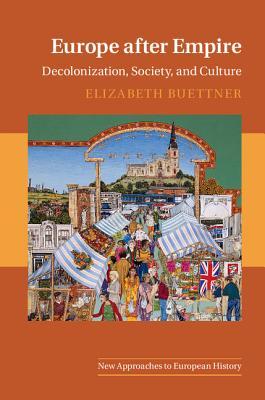
#31
Europe after Empire
Decolonization, Society, and Culture
1880
Europe after Empire is a pioneering comparative history of European decolonization from the formal ending of empires to the postcolonial European present. Elizabeth Buettner charts the long-term development of post-war decolonization processes as well as the histories of inward and return migration from former empires which followed. She shows that not only were former colonies remade as a result of the path to decolonization: so too was Western Europe, with imperial traces scattered throughout popular and elite cultures, consumer goods, religious life, political formations, and ideological terrains. People were also inwardly mobile, including not simply Europeans returning 'home' but Asians, Africans, West Indians, and others who made their way to Europe to forge new lives. The result is a Europe fundamentally transformed by multicultural diversity and cultural hybridity and by the destabilization of assumptions about race, culture, and the meanings of place, and where imperial legacies and memories live on.
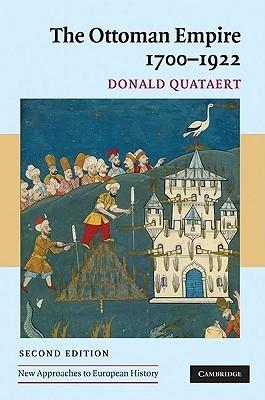
#34
The Ottoman Empire, 1700-1922
2000
The Ottoman Empire was one of the most important non-Western states to survive from medieval to modern times, and played a vital role in European and global history. It continues to affect the peoples of the Middle East, the Balkans and central and western Europe to the present day. This new survey examines the major trends during the latter years of the empire, paying attention to gender issues and to hotly-debated topics such as the treatment of minorities. In this second edition, Donald Quataert has updated his authoritative text, revised the bibliographies, and included brief biographies of major figures of the Byzantines and the post-Ottoman Middle East. First Edition Hb (2000) 0-521-633281 First Edition Pb (2000) 0-521-63360-5
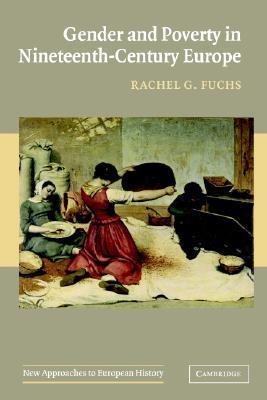
#35
Gender and Poverty in Nineteenth-Century Europe
2005
In a major new history of the dramatic and enduring changes in the daily family lives of poor European women in the nineteenth century, Rachel Fuchs powerfully conveys the extraordinary difficulties facing women in this period. She offers a fascinating study of their experience of birth, sex and death, as well as the changing responsibilities of individual family members and the transformations in society's responses to the problems of poverty. This accessible synthesis will be essential reading for students of women's and gender studies, urban history and social and family history.
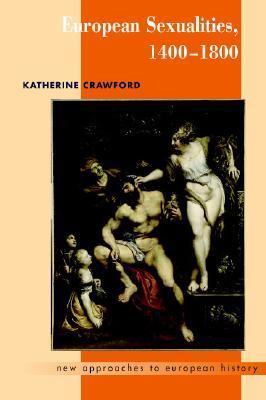
#38
European Sexualities, 1400-1800
2007
This is a major new survey of the social and cultural history of sexuality in early modern Europe. Within a frame that includes the Renaissance, the Reformation, the Scientific Revolution, and the Enlightenment, it weaves together statistical findings, discussions of changing sexual ideology, and evidence of belief structures regarding family, religion, science, crime, and deviance. While broad in overall scope and coverage, the transformations are framed to highlight the narrative of change over time within each domain. By emphasizing the interrelationship between practices and ideological change - in family form, religious organization, medical logic, legal structures, and notions of deviancy - Katherine Crawford's accessible survey reveals how these changes produced the conditions in which our modern notions of sexuality were developed. This book will be essential reading for students of early modern European history and the history of sexuality.
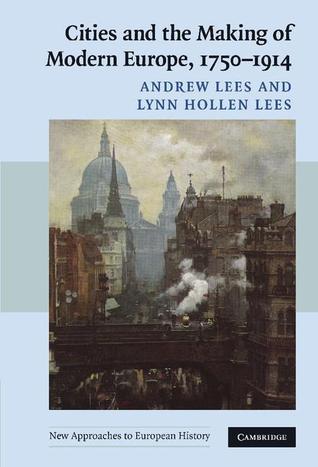
#39
Cities and the Making of Modern Europe, 1750-1914
2007
This book is a major survey of urbanization and the making of modern Europe from the mid-eighteenth century to the First World War. During these years Europe experienced startling rates of urbanization, with the populations of numerous cities growing by 1000 percent or more. This book explores the causes, course and consequences of this urban explosion. The authors link urban growth to industrialization, migration, and the growth of colonial empires. They show how the social, political, and intellectual challenges cities posed were met by urban reformers; how cities enriched cultural life; and how European cities influenced and were influenced by colonial cities. No other book in English situates the story of cities within the overall framework of European and imperial history during the long nineteenth century. Cities and the Making of Modern Europe will be essential reading for students of both modern European history and urban history.
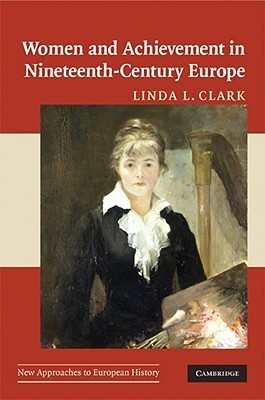
#40
Women and Achievement in Nineteenth-Century Europe
2008
This major new history of European women's professional activities and organizational roles during the 'long' nineteenth century examines what women could and could not do if they sought activity, purpose, or recognition beyond their own homes. Linda L. Clark surveys women's achievements in literature, art, music, theater, charity, education, medicine, law, and public administration, and examines the relationship between women's professional and philanthropic activity and the rise of feminist organizations. She shows that, despite continuing legal, cultural, and familial obstacles, thousands of ambitious women pursued professional activities for reasons that often combined economic need with aspirations to do meaningful work and gain public recognition. Detailing women's accomplishments from England to Russia, this unique survey enables readers to connect individual life stories with larger political, social, and economic contexts between 1789 and 1914 and is essential reading for students of modern European history, women's history, and gender studies.
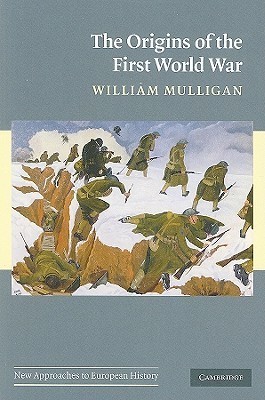
#43
The Origins of the First World War
2010
Providing a new interpretation of the origins of the First World War, this textbook synthesises recent scholarship and introduces the major historiographical and political debates surrounding the outbreak of the war. William Mulligan argues that the war was a far from inevitable outcome of international politics in the early twentieth century and suggests instead that there were powerful forces operating in favour of the maintenance of peace. His fresh perspective on the pre-war international system takes account of new approaches to the study of international politics since the end of the Cold War and the acceleration of globalisation. Thematic chapters examine key issues, including the military, public opinion, economics, diplomacy and geopolitics, and analyse relations between the great powers, the role of smaller states, the disintegrating empires and the July crisis. This compelling account will significantly revise our understanding of diplomacy, political culture, and economic history from 1870 to 1914.
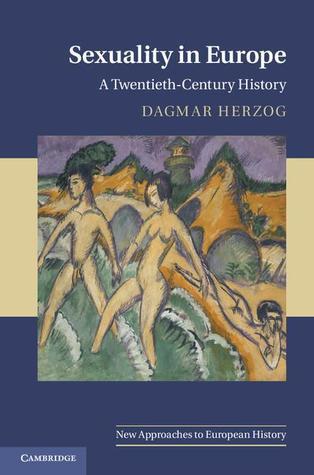
#45
Sexuality in Europe
A Twentieth-Century History
2011
This original book brings a fascinating and accessible new account of the tumultuous history of sexuality in Europe from the waning of Victorianism to the collapse of Communism and the rise of European Islam. Although the twentieth century is often called “the century of sex” and seen as an era of increasing liberalization, Dagmar Herzog instead emphasizes the complexities and contradictions in sexual desires and behaviours, the ambivalences surrounding sexual freedom, and the difficulties encountered in securing sexual rights. Incorporating the most recent scholarship on a broad range of conceptual problems and national contexts, the book investigates the shifting fortunes of marriage and prostitution, contraception and abortion, queer and straight existence. It analyzes sexual violence in war and peace, the promotion of sexual satisfaction in fascist and democratic societies, the role of eugenics and disability, the politicization and commercialization of sex, and processes of secularization and religious renewal.
Authors
Donald Quataert
Author · 3 books
Donald George Quataert (September 10, 1941 – February 10, 2011) was a Dutch-American born historian at Binghamton University. He taught courses on Middle East/Ottoman history, with an interest in labor, social and economics, during the early and modern periods. He also provided training in the reading of Ottoman archival sources.
Mack P. Holt
Author · 4 books
Mack P. Holt is Professor of History and received his Ph.D in History from Emory University in 1982. Before coming to George Mason in 1989 he taught at Harvard and Vanderbilt universities. From 1998 to 2002 he was also Director of the Honors Program in General Education, and he served as the department’s Director of Graduate Studies from 2004 to 2010.
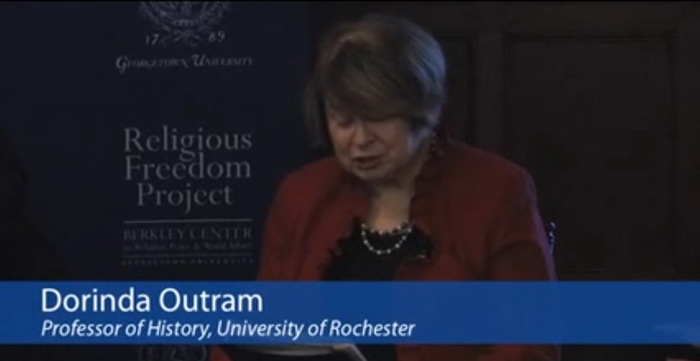
Dorinda Outram
Author · 3 books
Dorinda Outram is Clark Professor of History at the University of Rochester in Rochester, New York.
Simon Dixon
Author · 3 books
Simon Dixon is Sir Bernard Pares Professor of Russian History at University College London.
Ulinka Rublack
Author · 6 books
Ulinka Rublack is Professor at the University of Cambridge and has published widely on early modern European history as well as approaches to history. She edited the Oxford Concise Companion to History (2011), and, most recently, the Oxford Handbook of the Protestant Reformation (2016). Her monographs include Reformation Europe (2005), The Crimes of Women in Early Modern Germany (1999), and Dressing Up: Cultural Identity in Renaissance Europe (2010), which won the Roland H. Bainton Prize.
Linda L. Clark
Author · 1 book
Dr. Linda Loeb Clark is Professor of History, Emerita, Millersville University of Pennsylvania.
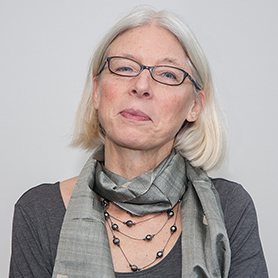
Dagmar Herzog
Author · 10 books
Dagmar Herzog (born 1961) is Distinguished Professor of History and the Daniel Rose Faculty Scholar at the Graduate Center, City University of New York. She has published extensively on the histories of sexuality and gender, psychoanalysis, theology and religion, Jewish-Christian relations and Holocaust memory, and she has edited anthologies on sexuality in the Third Reich, sexuality in twentieth-century Austria, and the Holocaust.
